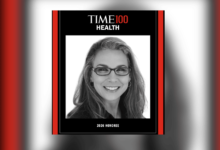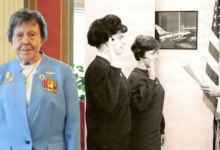Even in 1924, the nursing regulator came under fire for perceived failings

Our current regulator, the Nursing and Midwifery Council, may think it has challenges with perceptions of its role and culture, and its ever-present backlog of fitness-to-practise cases. But spare a thought for its forerunner, the General Nursing Council (GNC) for England and Wales, which had attracted the ire of Nursing Times.
In the 3 May 1924 issue of Nursing Times, editor Swanhilde Bulan dedicated her leading article to the apparent failings of the GNC – which was still in its infancy at the time – and how it conducted its council meetings. Her words paint a picture of meetings that were chaotic in structure, with questions asked at random moments and points made on matters that were not the current subject of discussion.
Her observations will no doubt chime with present-day readers’ experiences of many meetings they may have attended. Setting the scene at the start of her piece for the scathing critique to come, she said: “Criticism must be candid if it is to be useful, and well-meaning frankness should therefore give no offence.”
She began by stating that, as an onlooker, she had observed little improvement in the “attitude” of council members in the 16 months since they were elected with little experience of such meetings. About the nine lay members and 16 nurses on the council, Ms Bulan said: “They seem to come unprepared, having, for the most part, no plan as to their line of action, rather like the tactics of the barrister with a bad case who ‘jumps in and splashes about’.” She added: “This is not what should be expected from professional women with a considerable knowledge of the subject being debated.”
Ms Bulan went on to attack apparent indecisiveness among council members on matters of discussion. “Either they agree with the proposition put forward and should say nothing… or else they should oppose on definite, thought-out lines,” she wrote. “Uncertainty on the part of members as to whether they agree or not as items are reached on the agenda is difficult to understand.”
Next, she suggested that proceedings were often interrupted by questions that invariably strayed from the topic at hand and that members did not stick to the agenda when asserting their views. She said: “The system of questions being allowed at any stage of proceedings is both contrary to practice and often detracts from the subject matter, since supplementary questions are bound to ensue, thus diverting discussion into channels far from the point at issue.”
She added: “If the business of the council is properly followed, there should be no difficulty in knowing what is being debated. Yet it frequently happens that a member is speaking to the recommendation either before or after the one before the council.”
She reserved her strongest criticism for the behaviour of members in how they disagreed with each other, however, her description suggesting a tense and unfriendly atmosphere at council meetings. “For a member to ‘talk at’ another member or to attack her views through the chairman is bad form, but it is not unknown, and questions asked of the chairman with the object of ridiculing or discrediting a colleague should likewise be ruled out,” she said. “This practice does not become the GNC, from which one would expect debate conducted according to best rules,” she stated, in no uncertain terms.
Elsewhere, the issue noted that a ‘nurses’ service’ was due to be held on 18 May in Liverpool Cathedral to mark the birthday of Florence Nightingale. This service, it was thought, was the first of its kind in England and it was hoped it might “become an annual event”. That wish was granted – the 59th Florence Nightingale Commemoration Service will take place on 15 May 2024 at Westminster Abbey.
Meanwhile, the clinical practice section of the magazine was concerned with the absorption of food and the hygiene of hair – the latter being the focus of an article looking at loss of colour with age.
There was also a detailed description of the structure, facilities and working practices of St Mark’s Hospital in Park Royal, London, now also known as the National Bowel Hospital. It was founded in 1835 as a small room for the “cure or relief of cancer, fistula and diseases of the rectum” among the poor, noted Nursing Times. Currently run by London North West University Healthcare NHS Trust, it remains the only hospital in the world to specialise entirely in intestinal and colorectal medicine.
Nursing Times Archive
With Nursing Times’ online archive of its print issues, subscribers can dip into the history of nursing at the touch of a button and discover how it has changed over the decades. Each issue’s stories, features and even advertisements give a fascinating insight into the profession and much more. Representing over 100 years of nursing history, the Nursing Times Archive starts with the very first issue of the magazine, which was published on 6 May 1905. This great resource can be accessed directly from our website.
To start exploring, visit: nursingtimes.net/digital-archive






